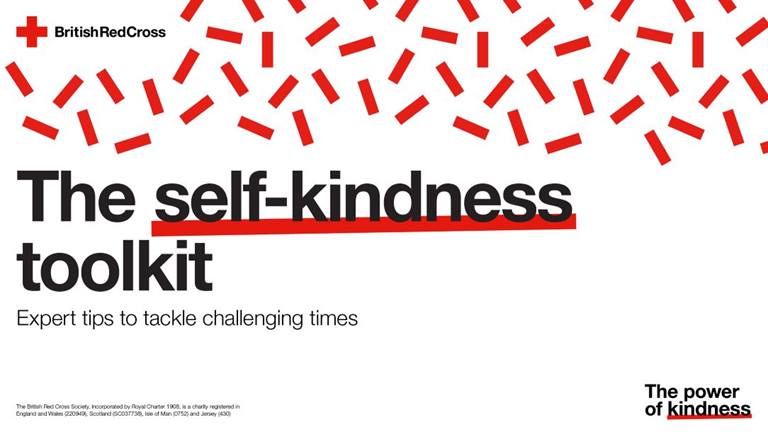Understanding and dealing with stress
Activities helping to recognise and how to deal with feelings of stress
We all deal with stress and stressful situations in our everyday lives. Stress is a natural and normal response to a ‘trigger’: something that we think is a threat or danger to us. It is designed to help us survive but feeling stressed too often can have negative effects on our bodies and our wellbeing. It’s important to understand, identify and deal with chronic stress.
These activities will help you better manage your feelings of stress and learn how you can relieve them.
On this page you can learn about:
What is stress?
When talking about stress we usually mean situations or events that put pressure on us. Feeling stress because of unfamiliar, uncomfortable or high-pressure situations is normal. It produces a range of physical and mental effects but affects every person differently.
- What does stress mean to you?
- Can you identify how it feels to be stressed and what it does to your body?
If you are seriously concerned about your stress level or the effects it is having on your body and wellbeing, visit your doctor or call the NHS on 111.
Identifying stress patterns
Stress affects people in various ways, for different reasons. Stress at work, worries about school exams, pressure at home or changes in life can all cause us to feel stressed. Specific situations like job interviews and school exams can also be a source of stress in our lives. We cannot always avoid stress and stressful situations, but understanding what makes you stressed and how it affects you can helps you to manage it.
Can you identify how it feels to be stressed and what it does to your body? Learning how to notice when you are stressed is the first step to managing it better. Use this activity to learn how to notice the stress.
Activity
Identifying patterns in your stress could help you to better manage these feelings and reduce your stress levels with a quick activity.
Complete the stress patterns activity in the video, or you can just write things down in a list if you find that more useful.
You will need coloured pens and paper for this activity.
After drawing your own stress pattern, look at it carefully. Ask yourself:
- what pattern do you notice?
- is it always the same things that make you stressed?
- does stress change your body, feelings, and thoughts in the same way each time?
- do the same things help you to feel better?
Consider doing this activity repeatedly over time. Do it once a week for a few weeks or every day for a week and track the changes and patterns you notice. You might notice that the same thing causes you to feel stressed every time or that your stress feels and looks the same every time.
This will help you to notice, identify and acknowledge the stress, as well as possibly finding the trigger.
'How to understand stress' transcript
You can get more advice on the effects of stress on these websites:
Managing stress
Now you can identify the stress, think about how you might be able to reduce how often you get stressed, or relieve stress when you become stressed.
Think about
Go back to your stress patterns and look for causes of your stress that you can identify.
- What can you do to manage the causes?Can you talk to others, such as friends or managers at work, to reduce the stress? Sharing the burden with others and being honest about the things that are causing you stress is an important way of managing it. We can’t always avoid stressful situations in life, but we can do things to manage them when they do occur.
- How you can prepare yourself to cope with stress triggers. If you know doing specific things causes you to be stressed, can you plan activities or time out to provide relief afterwards?
- What activities or people act as a stress reliever and help you feel better? Does a nice walk help you clear your head and feel calm, or talking to a friend or taking a ten-minute mindfulness break? Regular breaks to check in with yourself and how you feel can help you deal with stressful situation better.
Ways you can cope with stress
Look at the list below and think about what might help you to reduce stress:
- healthy eating
- taking regular breaks
- good sleeping patterns
- physical exercise or activities
- breathing and relaxation exercises
- managing your time well
- talking to people
- helping people
Is there anything else missing on this list that you think would help you cope with stress and stressful situations like exams or job interviews? Remember that it’s important to pick up healthy habits and avoid relying on coping mechanisms that might cause yourself and others harm.
A healthy and stable routine may help you include these activities in your everyday life. Learn more about creating a routine that suit you.
Calming down when feeling overwhelmed
Sometimes we experience stressful situations which make us feel panicked, nervous or agitated. This could be an emergency or even an exam or job interview can cause this reaction. This can feel overwhelming.
We can help ourselves to manage this feeling by finding ways to calm our minds and bodies. If you feel like this, try this breathing exercise to manage the feeling quickly.
-
Sit somewhere quiet where you can feel safe and relaxed.
-
Think of a colour you associate with negative feelings – maybe grey, or red.
-
As you breathe out, imagine you are breathing out that colour. Visualise the colourful cloud of breath leaving your body.
-
Now think of a colour that symbolises positive feelings – maybe pink, or yellow.
-
As you breathe in, imagine you are breathing in that colour. Imagine the positive feelings filling your lungs and flowing around your body.
-
Do this for at least five breaths.
Try this activity out. Does it help you feel less overwhelmed? Could you do this in future when you feel like this again?

Stress support for children and young people
Everyone can experience stress. Whether it's in school or at home, these activities are aimed at helping children and young people manage stressful situation and help improve their wellbeing.

Resources to help you cope with adversity
Everyone encounters moments of stress in their lives. Managing your wellbeing and mental health can help you build resilience and make it easier to deal with these harder moments. Use our wellbeing activities and information to support yourself, or try these resources.

Self-kindness toolkit
Explore more information and activities to help you manage stress, cope with change and boost your wellbeing with our toolkit. It’s full of helpful tips and skills to build your resilience.
You can download the pack here.
Do you have a question about this page or want to give us feedback? Visit our Contact us page.

